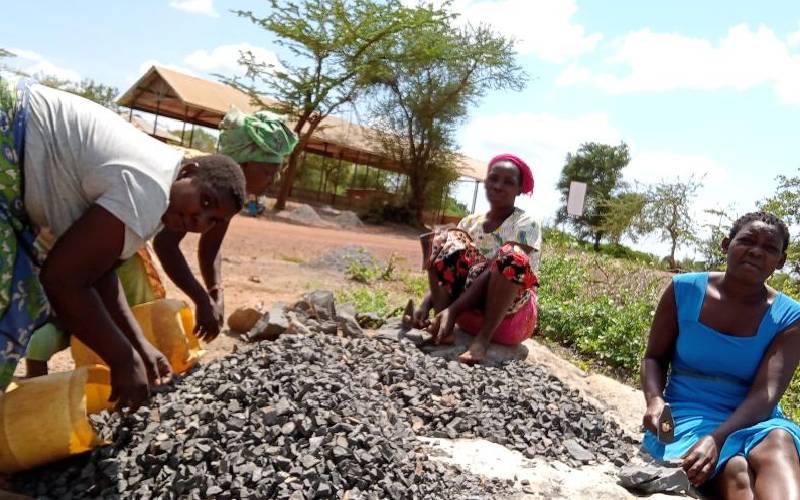×
The Standard e-Paper
Home To Bold Columnists

Patience Kadzo, Salama Charo, Agness Kitsao and Magret Kang'ombe at the site where they crash stones at the Kikwanguloni quarry in Ganze sub-county-Kilifi. [Marion Kithi, Standard]
Tough times have pushed women from Kikwanguloni village in Ganze sub-county towards hard jobs to survive. They work as quarry women, crushing stones to earn a living.